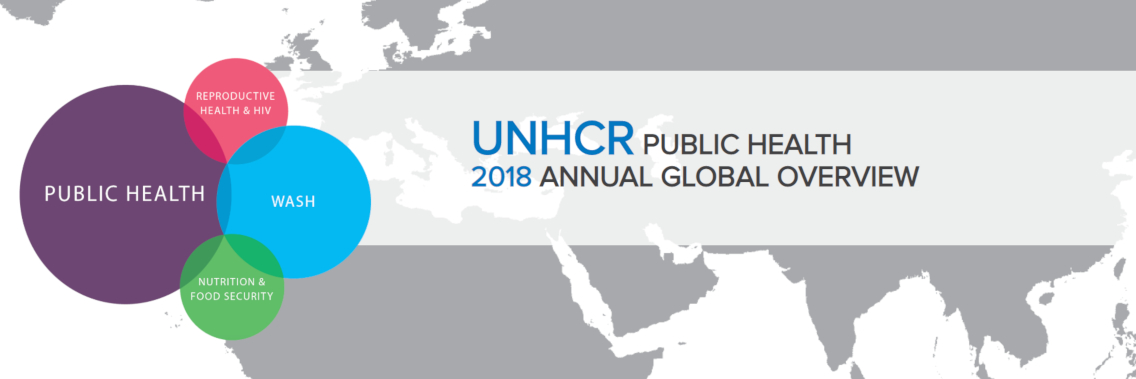Despite record levels of worldwide displacement and continuing refugee influxes, some 10.5 million refugees received health care through public health programs and through UNHCR, the UN Refugee Agency and other partners last year.
This is according to data published in UNHCR’s Annual Public Health Global Review.
The report highlights the state of health, nutrition, water, sanitation and hygiene activities for refugees, asylum seekers and affected host communities across 51 refugee-host countries.
“With the majority of refugees, 84 percent, hosted in developing regions where basic services are already strained, national health systems need more support than ever to ensure refugees and their local host communities can access life-saving and essential health care,” said UNHCR’s Assistant High Commissioner for Operations, George Okoth-Obbo.
The report shows that among progress made in 2018, mortality rates among refugee children under the age of five, an important health impact indicator in emergencies, continue to decline.
This is despite continued refugee influxes, including from Myanmar, South Sudan and the Democratic Republic of Congo into neighbouring countries last year.
The report also highlights significant progress made on the inclusion of refugees into national health systems, with some countries also making notable efforts to expand opportunities to include refugees in health insurance schemes and other pillars of social protection.
Key areas of concern for refugee health, however, include disease outbreaks in refugee contexts. Over the course of the year, UNHCR public health teams and partners responded to various outbreaks ranging from diphtheria and suspected measles in Bangladesh to cholera and viral haemorrhagic fever in Kenya and Uganda.
Malnutrition also remains a worrying refugee health issue. While improvements in Global Acute Malnutrition (GAM) rates, one of the main nutrition indicators, were made in a number of refugee settings, when compared to the previous year, UNHCR is extremely concerned about the continued high levels of anaemia and persistently high levels of stunting among many refugee populations.
While the causes of malnutrition vary, food insecurity is a significant factor. Many UNHCR operations have suffered increasing cuts to food assistance over the past few years and there is an increasing trend in the number of countries affected.
Given the record levels of forced displacement globally, and with 25.9 million refugees worldwide, UNHCR is appealing for support to sustain its core activities, such as for refugee health programs. As of mid-2019, only 30 percent of UNHCR’s global budget of USD 8.636 billion, which supports life-saving services and programs for refugees in 131 countries is funded.
Read and download the UNHCR’s Annual Public Health Global Review.
Original source: UNHCR
Published on 18 July 2019

